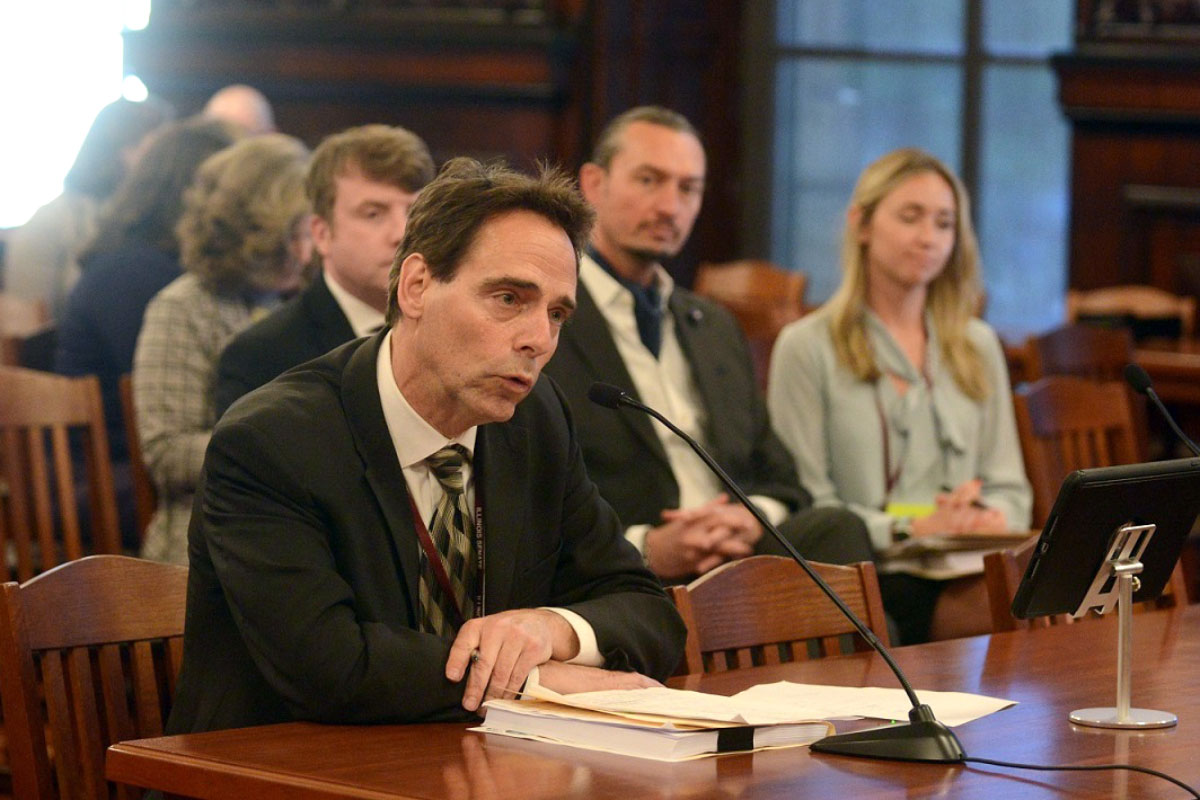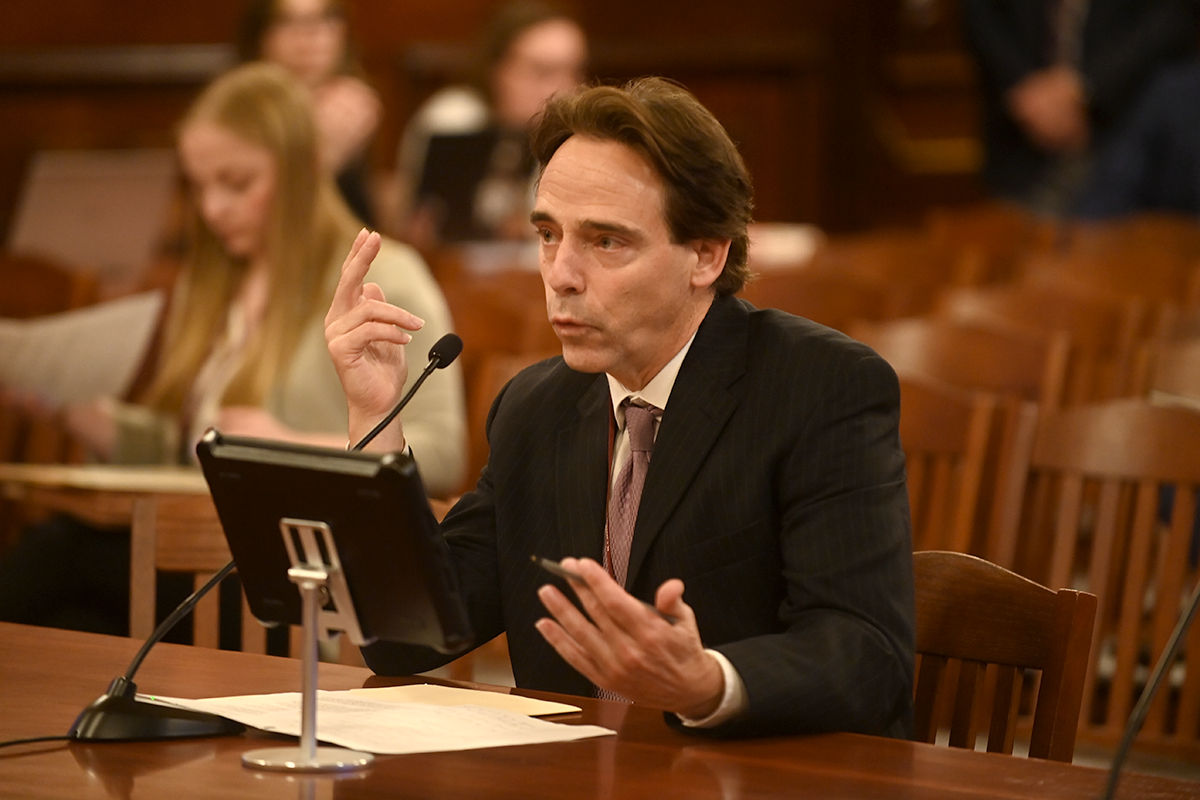- Details
 SPRINGFIELD – State Senator Steve Stadelman is taking a significant step toward safeguarding consumers’ financial well-being by introducing legislation aimed at prohibiting consumer reporting agencies from including adverse information related to medical debt in credit reports.
SPRINGFIELD – State Senator Steve Stadelman is taking a significant step toward safeguarding consumers’ financial well-being by introducing legislation aimed at prohibiting consumer reporting agencies from including adverse information related to medical debt in credit reports.
“Medical debt should not serve as a barrier to financial stability and opportunity,” said Stadelman (D-Rockford). “No one should have to endure the added stress of damaged credit due to medical expenses beyond their control. This legislation is about ensuring fairness and equity for consumers, regardless of their health status.”
Senate Bill 2933 would prohibit a consumer reporting agency from making a credit report containing any adverse information about the consumer related to medical debt.
Read more: Stadelman measure to protect consumers from adverse medical debt reporting
- Details

SPRINGFIELD – State Senator Steve Stadelman has advanced legislation that provides protections against the criminal act of hazing.
“Hazing is a serious issue that undermines the safety and well-being of our students and communities,” said Stadelman (D-Rockford). “No individual should ever feel pressured or coerced into participating in activities that jeopardize their physical or mental health.”
Under Senate Bill 2934, a person agreeing to participate in a hazardous situation would not shield those accused of the hazing. According to Goldberg & Loren, in 95% of hazing cases, students aware they were hazed did not report it. Humiliation is the most popular method of hazing, accounting for 67% of total incidents that happen. Stadelman’s measure would establish a consent clause within state law, bringing Illinois in line with several other states that clarify consent to hazing does not protect against hazing charges.
Read more: Stadelman passes legislation to strengthen Illinois’ hazing laws
- Details

ROCKFORD – State Senator Steve Stadelman advanced legislation through the Senate Judiciary Committee that keeps victims and survivors safe from their abusers by expanding the definition of stalking to include electronic tracking systems.
"As tracking devices become more popular, people are caught using them for the wrong reasons,” said Stadelman (D-Rockford).
With advances in technology, people are using electronic devices to keep track of their luggage, wallets and other personal belongings. However, people are also using them to stalk others.
Through Senate Bill 2683, Stadelman is working to change the Stalking No Contact Order Act to be consistent with the criminal definition of stalking. The new legislation would change the definition of “course of conduct” of stalking to include the use of an electronic tracking system to determine a person’s location, movement or travel patterns. The legislation would also allow judges to prohibit respondents from using electronic tracking systems and acquiring tracking information in a court order.
Read more: Stadelman legislation would expand criminal stalking to include electronic tracking
- Details

SPRINGFIELD – Illinois and the nation are in the midst of a local journalism crisis, with news outlets closing or shrinking at an alarming rate. State Senator Steve Stadelman and the members of the Local Journalism Task Force spent the last year studying the decline of local journalism, and outlined its findings and policy recommendations at a news conference Wednesday.
“As local journalism declines so does the checks and balances on democracy. It’s an issue facing newsrooms across both the state and nation – due in large part to dwindling revenue that leads to a dwindling number of reporters,” said Stadelman (D-Rockford). “A disruption in finances is a disruption in talent. It was long past time for us to have serious conversations about the future of journalism and how that affects the future of our communities.”
Stadelman – a former TV news anchor – chaired the Local Journalism Task Force. Representatives from media, academia and government met nearly a dozen times throughout the previous calendar year to study the decline of local media, its impact on democracy, and potential policy changes that could increase revenue to newsrooms across the state.
Read more: Local Journalism Task Force outlines findings, potential policy changes
More Articles …
Page 10 of 42









